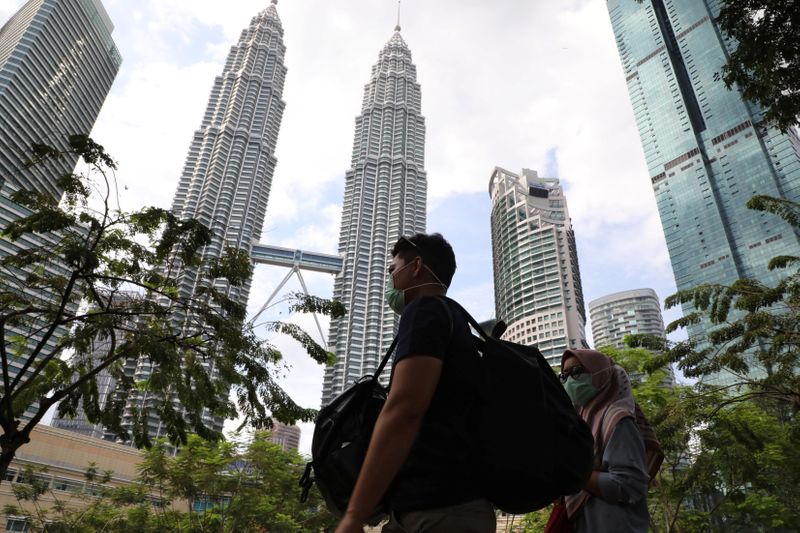By Neil Jerome Morales
MANILA (Reuters) - Southeast Asia's holiday hotspots, hit by billions in lost business from Chinese tourists, are turning to markets closer to home to soften the blow from travel restrictions caused by the coronavirus epidemic.
To make up for foregone revenues, firms in the region are dangling discounted airfares, hotel accommodation and tour add-ons in a bid to boost domestic travelers.
Home to rich culture, white sand beaches, diverse marine life, lively nightlife and affordable tours, Southeast Asia is the favorite for Chinese tourists, the region's top foreign visitors. But travel restrictions on China, the origin of the new coronavirus, since late January have led to losses in the region's hospitality sector.
In the Philippines, the government and tourism players last week launched a travel campaign led by President Rodrigo Duterte.
"Come with me and be my travel companion. I'll be traveling around the Philippines," Duterte said in video address, offering assurances that the virus posed no risks to local tourists in their own country.
Member firms of the Tourism Congress of the Philippines are offering discounts of up to 50% on hotels, free upgrades and complimentary items like breakfasts.
Other firms are offering individual customers corporate or government rates for tours and hotel accommodation, which are 15% to 30% cheaper, Arwin Paul Lingat, president of a tourism officers group, told Reuters.
Manila's Golden Phoenix Hotel has slashed its rates by two-thirds, its marketing director Christine Ann Ibarreta said.
LOCAL SWEETENERS
China's health authorities are reporting thousands of new cases daily of the coronavirus infection, which has killed 1,868 people, mostly in China. The flu-like virus' spread has also prompted countries to shut doors to Chinese travelers, who are a major source of growth for many Southeast Asian economies.
Southeast Asia welcomed more than 29 million mainland travelers in 2018, up 15% from a year earlier, data from the ASEAN Statistical Yearbook 2019 showed. That was nearly double the entire European market and almost five times the number of North American tourists.
Southeast Asian airlines are making fares attractive for cost-sensitive locals. Indonesia's biggest budget carrier, Lion Air, is reducing fares by up to 60% on select flights.
Philippines' largest carrier, Cebu Pacific, which has refunded 1.5 billion pesos ($29 million) to passengers, is offering seats on flights for as little as $2 before taxes while Philippine Airlines (PHL.UL) launched promotional discounts of 20% to 40%.
Thailand, Southeast Asia's biggest market for Chinese tourists, is now offering special packages for local elderly, which allows their expenses to be used for their children's tax deductions.
The Thai government is also providing tax breaks and soft loans to help slow job losses.
Vietnam, the region's second-largest market for Chinese tourists, said it would waive entrance fees to some tourist attractions when the outbreak is over. It has also simplified visa procedures for some non-Chinese arrivals. The coronavirus epidemic could wipe $5.9 billion to $7.7 billion from Vietnam's tourism earnings in the next three months.
Indonesia, Southeast Asia's largest economy, has also pledged to boost spending and incentives to soften the virus's business impact.
Bali, Indonesia's main tourist magnet because of its aquamarine water, white sand beaches and majestic cliffs, has seen 20,000 cancellations, said Hariyadi Sukamdani, head of the country's hotels and restaurants association.
In Kuala Lumpur, a 3,600-member industry group has planned for April its first ever "Cuti Cuti Malaysia" (Holiday in Malaysia) travel fair, exclusively focused on domestic tourism.
"Individual hotels, airlines, travel companies, theme parks, dive resorts, have reduced their normal rates, some by 20% and 30%," Tan Kok Liang, the industry group's president, told Reuters.
Despite the big push, industry experts do not expect local business to do much more than cushion the hit to the region's tourism sector.
In the Philippines, government and industry officials say domestic tourism can realistically only recoup 10%-20% of the estimated 22 billion pesos ($435 million) in monthly foregone revenues.
"The domestic, to be honest, will not make up for what the international market brings here," Tourism Congress President Jose Clemente told a congressional hearing. "Our objective right now is just to survive the storm...What we're trying to do is to have some cash flow."
